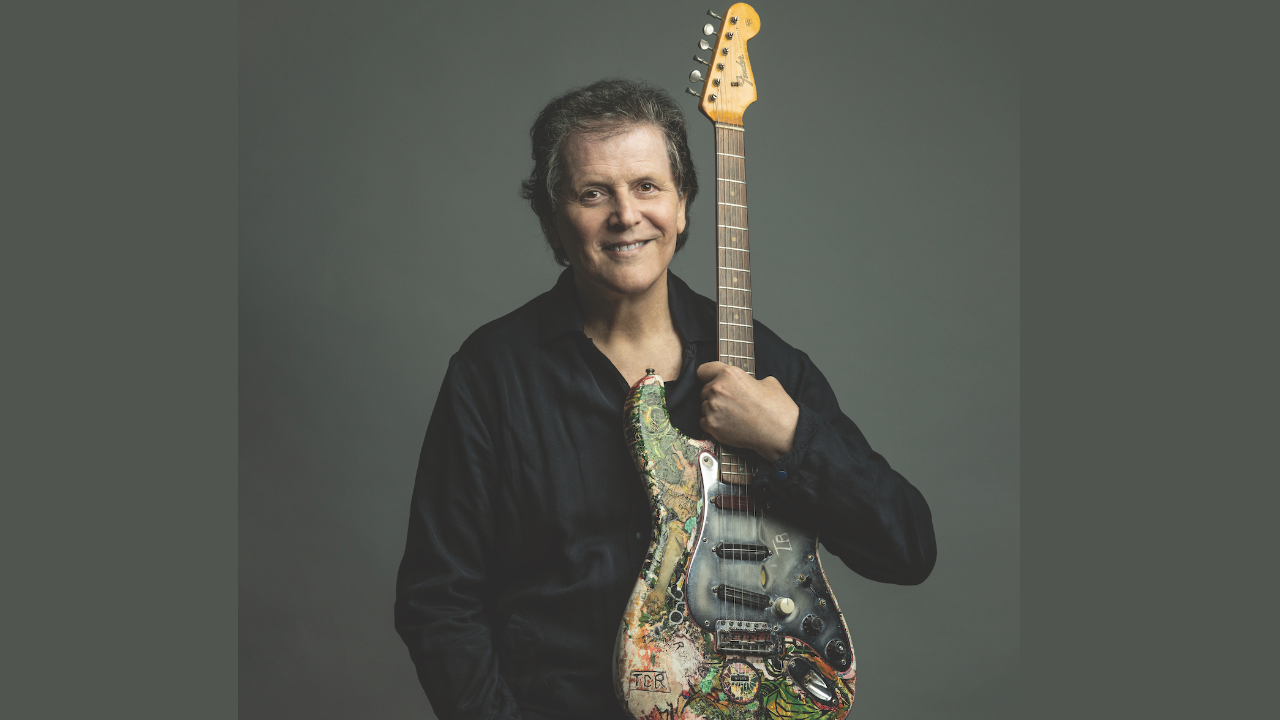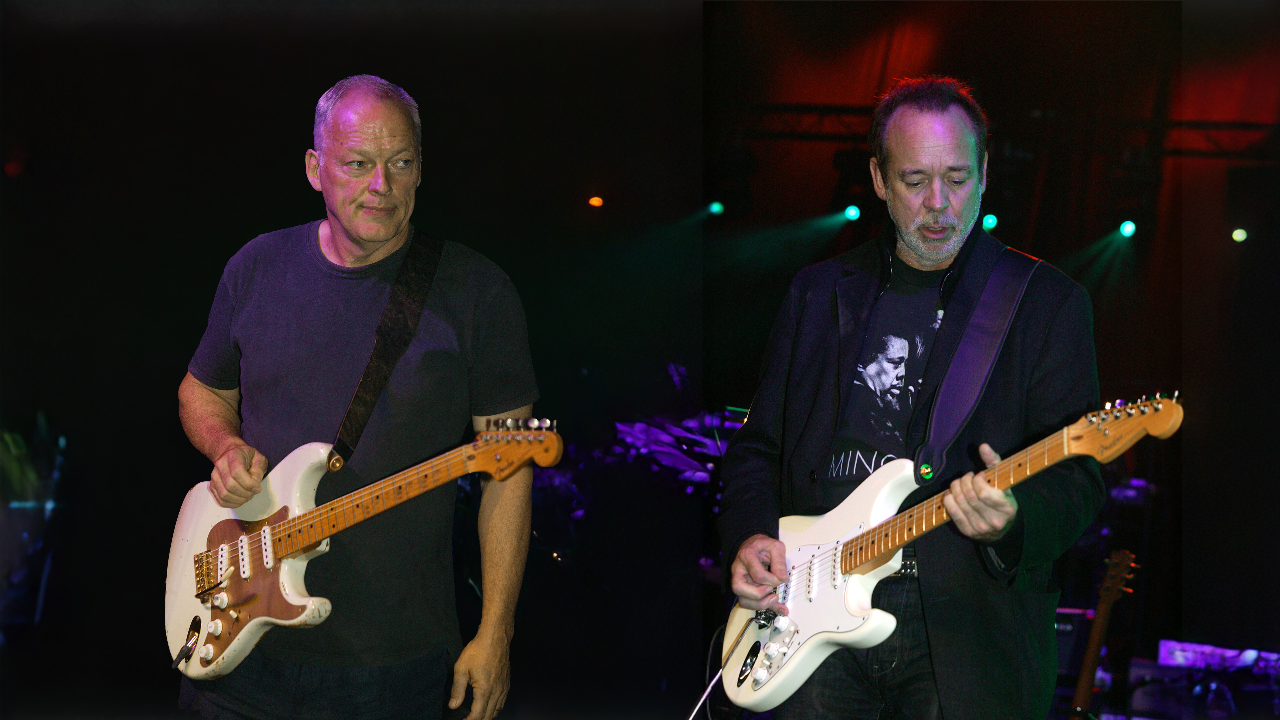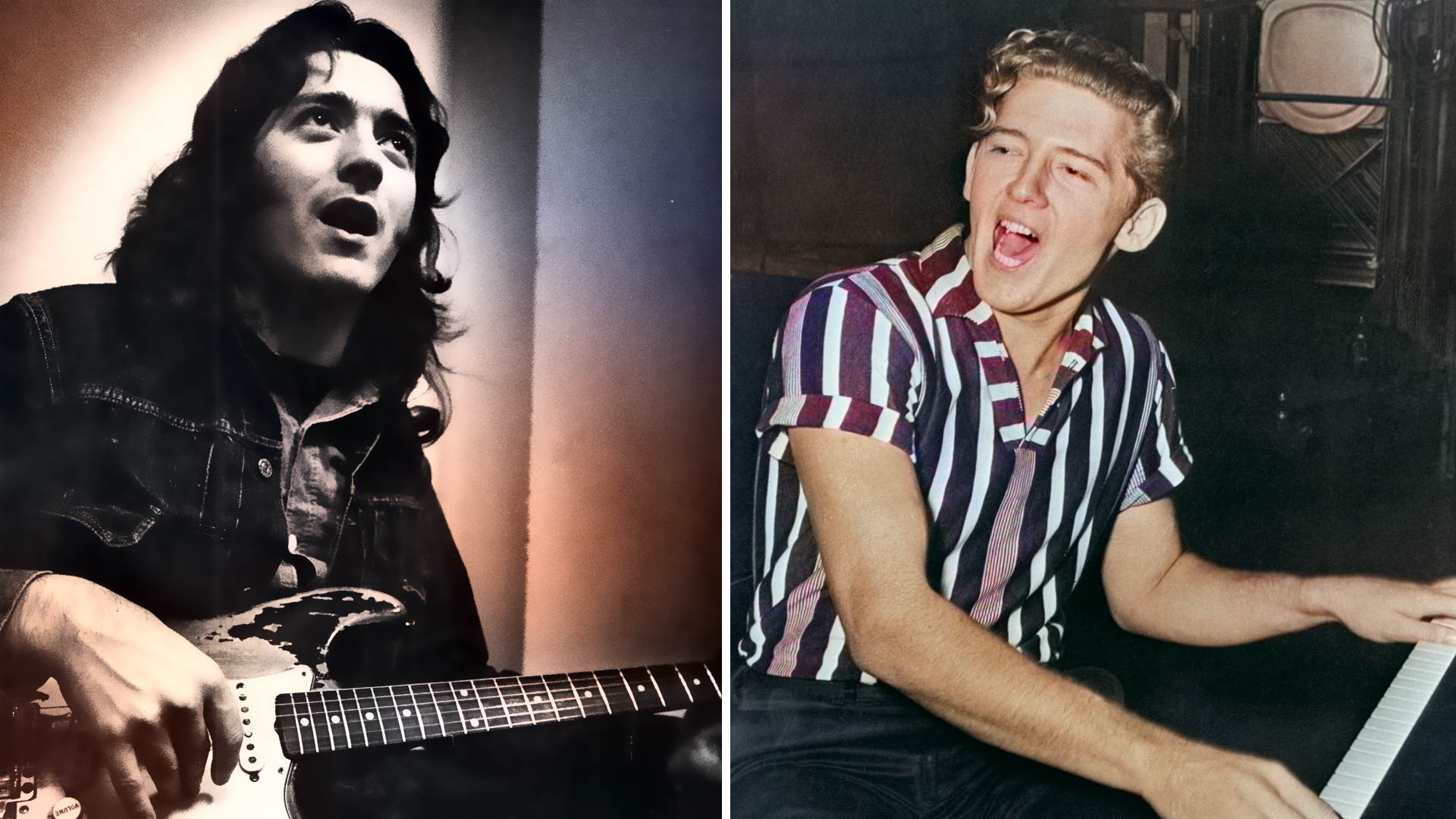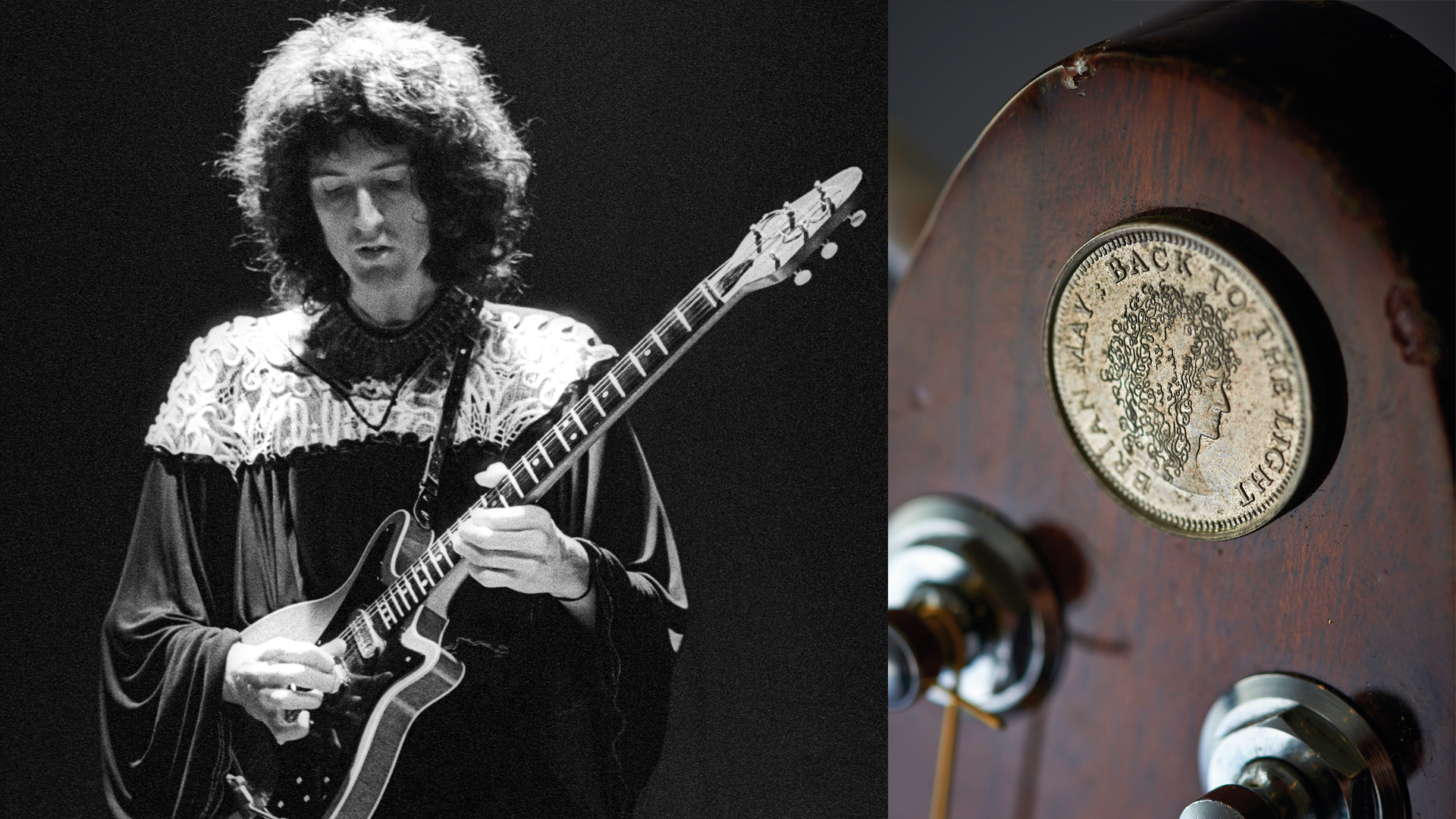"When I got the B-Bender, I learned how to find a way to bend so that it doesn’t sound just like a B-Bender but sounds like the strings are being bent by fingers…" Ex-Yes guitarist Trevor Rabin chats about Rio, his first new album of songs in 34 years
“The idea was to visit different genres but make sure it still sounds like a cohesive, coherent thing”: Trevor Rabin on scoring his new album Rio using a 1962 Fender Strat, Alvarez and B-Bender Tele

”I don’t think there was any kind of masterplan in the beginning, or anything close to it,” Trevor Rabin says, summarizing a music career that’s taken him from classroom music stands to Hollywood movie studios — and many points in between. “It all just kind of happened. I think everything took different avenues once it got going.”
Rest assured, the South African–born guitarist, composer, bandleader and Rock and Roll Hall of Famer (with Yes) has traveled a great many paths while playing music for almost all of his 69 years. His latest effort, Rio (Inside Out Music), is his first new song-oriented solo album in 34 years.
The son of overachieving artistic parents — dad Godfrey was an attorney, conductor and lead violinist in the Johannesburg Philharmonic; mom Joy a painter, ballerina, actress and classical pianist — Rabin says he grew up as a prodigy who “could read music before I could read English.”
Piano lessons at age five led to classical studies as a youth, as well as thoughts of becoming a conductor. That was well before the rock world beckoned with groups such as Rabbitt, Manfred Mann’s Earth Band and nearly Asia, after which he took Yes to the top of the charts with “Owner of a Lonely Heart” 40 years ago.
Then in the mid ’90s, partly thanks to a chance meeting with actor Steven Seagal, Rabin entered the scoring world and never looked back. His extensive resume in film and television includes 13 Jerry Bruckheimer movies and projects such as Con Air, Armageddon, Remember the Titans and National Treasure.
Rabin’s scores have also accompanied presidential speeches and the Mission: Space attraction at Disney’s Epcot park. He even became a basketball fan after being commissioned to write music for National Basketball Association and NCAA March Madness broadcasts.
Rabin did find himself on the rock and roll road again with fellow Yes alumni Jon Anderson and Rick Wakeman after the band’s Rock Hall induction in 2017, but he acknowledges that more than 25 years of scoring (lucrative, of course) subsumed that other vital part of his musical makeup.
“Time just kind of slipped by, you know?” he says from Los Angeles, where he moved during the early ’80s when Geffen Records was courting him to be part of the then-gestating Asia, a plan that ultimately, he says, “just wasn’t right.”
“It seems like yesterday I started doing film scores, and after doing 50-odd movies and hundreds of TV things and sports themes and what have you, the time just disappeared. It passed me by.”
Rabin did release an instrumental album in 2012 called Jacaranda, but his last vocal/song project was Can’t Look Away, in 1989, which came in the midst of a 13-year run with Yes that included four studio albums and the short-lived Union octet.
Not long after that, Rabin says, “I had this urge to sing and play some pretty much prog-rock type of things. I started thinking about what I’m gonna do and started putting it together in bits and pieces as time went by.”
The pandemic — and the addition of a new Telecaster with a B-Bender — instilled an urgency within him to get on with it.
“Last year I decided, Okay, I’ve got to stop screwing around and actually do it,” Rabin says with a laugh. “So I started pushing everything aside. I didn’t take on any films; I did a National Treasure: Edge of History series for Disney+, and once that was done I really put everything aside and concentrated on the album.
“The idea,” he continues, “was to visit different genres but make sure it still sounds like a cohesive, coherent thing from one guy, one entity. It happened pretty quickly once I got to work on it, actually. I had ideas from quite some time ago which I hadn’t really implemented or done — lyrical ideas I didn’t have any music for, or vice versa — and it all just started to tie together and worked out.”
The 10-track Rio is largely a one-man affair. Jacaranda contributors Lou Molino and Vinnie Calaiuta both played drums, while Rabin’s son Ryan assisted with percussive arrangements, and Dante Marchi and Liz Constantine added backing vocals on two songs.
And even though he, like so many others, had been locked down and away from other musicians, Rabin says he was still well-tuned from seven years of playing in ARW with Anderson and Wakeman.
“Two hundred shows later, my chops were pretty moving,” he says, while acknowledging that his immersion in the scoring world kept ARW from releasing more than one original song, “Fragile” (a demo of which is included on a limited deluxe edition of Rio).
“After the Rock and Roll Hall of Fame thing, we talked and said, ‘Let’s do some shows!’” Rabin recalls, “but I had film stuff on the burner, so I figured we’d do five, six shows and it’d be a lot of fun. And then look what happened! And it was great. I didn’t think it would turn out as well as it did.
“The one thing we never did, which was talked about so much, was a record, but we ended up on the road the whole time, which was our choice, prompted heavily by management and promoters. There were a couple ideas here, but nothing really serious, except for ’Fragile,’ which is something I’d had for a long time.”
Although guitar has been a primary tool for his scoring, Rabin was happy to apply it to the song format for Rio, where he primarily used his heavily modified 1962 Fender Stratocaster with a rosewood fretboard, an Alvarez and the B-Bender Tele.
“Oh, man, it was like honey,” he says with a wide smile. “Obviously, I’d been playing a lot of guitar on the scores, but nothing like doing a record or playing live, picking up the guitar and sticking it in there and really going. So I was a kid in the candy store. It was great.” And, he adds, the scoring had given that kid an expanded vocabulary for this group of songs.
“I did change my whole approach,” Rabin notes. “I wanted to use the guitar to do solos, obviously, but I didn’t want it to be like the metal stuff, where they stand on the podium and shred. I always wanted to arrange things and have sounds on there that were necessary, not some kind of statement. I think the movies led the guitar to moving in that direction even more.”
On Rio you can hear Rabin’s pent-up guitar hero come out, particularly on the track “Thandi” (the name of an illegally poached rhinoceros), as he unleashes a soundscape that knits together elements of prog and jazz fusion and fuzz-box sound effects, all through a 100-watt Marshall stack.
“That’s probably the song I enjoyed playing the most,” Rabin says, smiling again. “I remember my wife coming home, saying, ‘I can hear it at the bottom of the street!’”
“Getting the sounds for the different parts of that song was a real blast,” he continues. “I did the solos about six times each, just ’cause I was enjoying playing them. I didn’t think, Which one shall I use? It was, I want to do that again! I thoroughly enjoyed just playing it.”
Rabin exercises his rock chops throughout Rio, particularly on the opening “Big Mistakes” and “Push,” while applying his orchestral sensibilities to tracks such as “Oklahoma,” an elegy to the 1995 domestic terrorist attack in Oklahoma City.
On “Paradise” and “Goodbye,” meanwhile, he reveals a country facility that may surprise some of his audience.
“I love great country players,” Rabin says, noting Vince Gill and Jerry Douglas’s Dobro work, in particular. “There’s just a load of great players. But when I got the B-Bender, I fell in love with it and learned how to find a way I can bend so it’s smooth and doesn’t sound just like a B-Bender but sounds like the strings are being bent by fingers — that’s where that song ’Goodbye’ came from, with a lot of the chicken pickin’. That was great to play.”
Rabin says a tour in support of Rio “is certainly gonna be on the cards,” but there are no concrete plans yet. And while the scoring world will surely beckon again, he’s also confident that it won’t be another 34 years before we get another song album from him.
“I’ve actually already started,” Rabin says, indicating that he’s “halfway through a long song” that will likely be to the liking of the substantial Yes contingent in his audience.
“When I was with Yes, after the success of 90215 — which were reasonably short songs — the record company started asking for long songs, ’cause that’s just the history of Yes. I’ve got nothing against that, so there may be more of that on the next one.”
Trevor Rabin’s new album Rio is available to buy or stream now
Get The Pick Newsletter
All the latest guitar news, interviews, lessons, reviews, deals and more, direct to your inbox!
Gary Graff is an award-winning Detroit-based music journalist and author who writes for a variety of print, online and broadcast outlets. He has written and collaborated on books about Alice Cooper, Neil Young, Bob Seger, Bruce Springsteen and Rock 'n' Roll Myths. He's also the founding editor of the award-winning MusicHound Essential Album Guide series and of the new 501 Essential Albums series. Graff is also a co-founder and co-producer of the annual Detroit Music Awards.
“I did the least commercial thing I could think of.” Ian Anderson explains how an old Dave Brubeck jazz tune inspired him to write Jethro Tull’s biggest hit
"This 'Bohemian Rhapsody' will be hard to beat in the years to come! I'm awestruck.” Brian May makes a surprise appearance at Coachella to perform Queen's hit with Benson Boone











